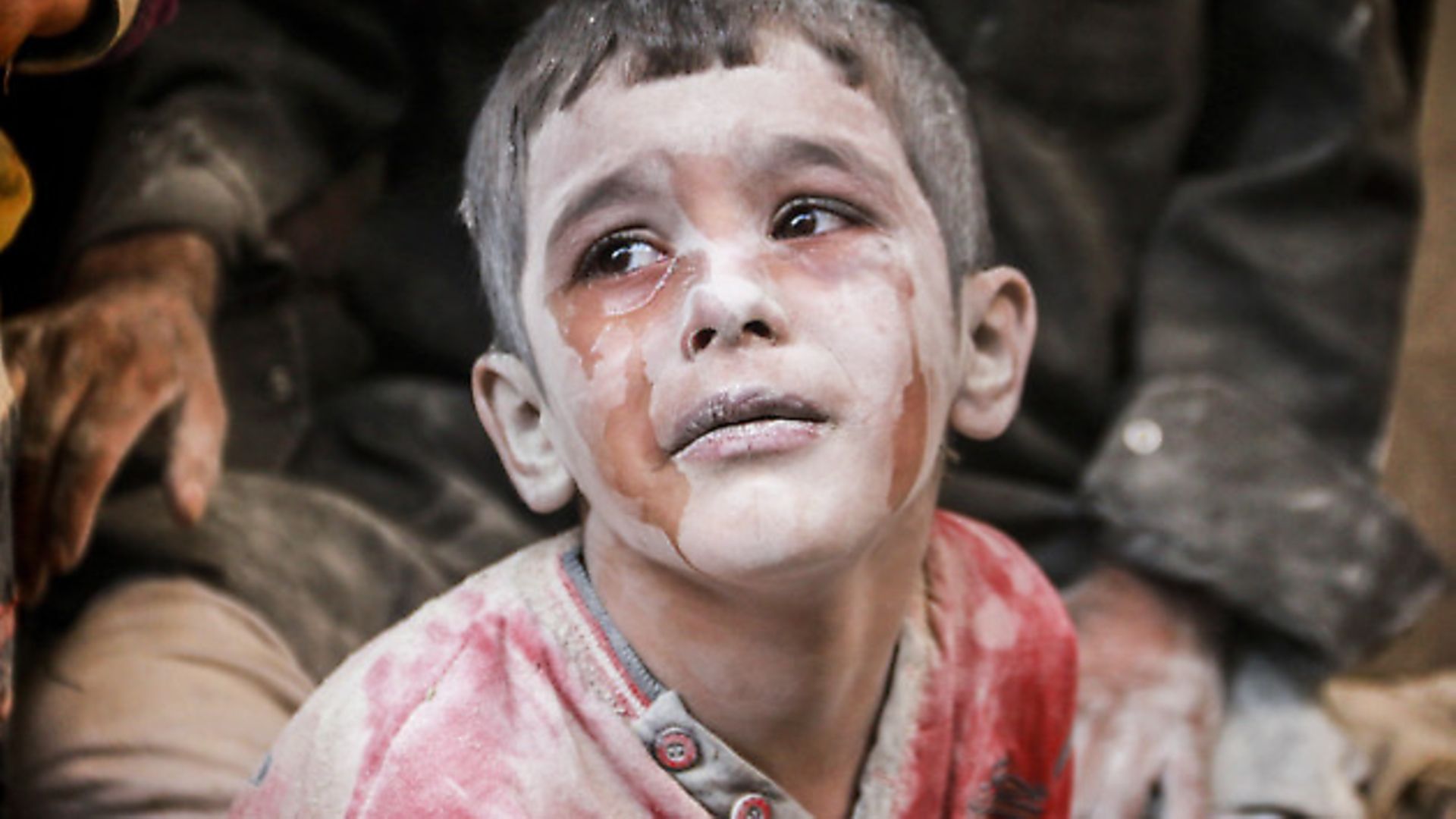
In 2013 Labour’s Mary Creagh voted with her party in opposing intervention against President Bashar al-Assad’s brutal clampdown
In Aleppo, Syria’s largest city, thousands of residents have been trapped for months, subjected to siege and starvation, and attacked with chemical weapons.
As the city fell to regime forces this week, reports emerged of summary executions, of fleeing civilians being bombed, and of men and boys being separated from their families in a chilling echo of the Srebrenica genocide.
This week, on the Victoria Derbyshire programme, I spoke to Zouhir Al Shimale, a journalist trapped in eastern Aleppo. Zouhir urged people to protest against Russia and Syria’s war crimes, despite the building he was in being shelled during his interview.
Listening to him in the BBC studio, I feared he would be killed, on air, on Skype, during our conversation. I fought back tears as I told him that history would remember his courage, his narrative, his witness, which would be used to hold the war criminals accountable.
Thanks to the courage of Zouhir, and scores of citizen journalists, humanitarian workers, and medics, we see in real time, on our social media feeds, the atrocities carried out by Russian and Iranian backed militias and Syrian government forces.
These journalists and humanitarians are targets because they counter regime propaganda that Assad is fighting jihadis, when he is targeting women, children, academics, nurses and teachers.
Every hospital in eastern Aleppo has been destroyed. There are pop-up clinics in underground locations, in nightmare conditions, with people lying on the floor and no medicine or anaesthetics.
The ambulances of the White Helmets have been targeted, and there is now no fuel for them. Women and children lie trapped under ruined buildings as it is too dangerous to rescue them. Aid convoys have not reached the city for months, meaning thousands of people are slowly starving to death, surviving on dates and bulgar wheat.
What is happening in Syria shames our country, the democratic world, and the United Nations. The head of MI6 Alex Younger warned last week that Assad seeks to make a desert and call it peace. Assad and Russia will not stop at Aleppo. Idlib will be next.
Two-thirds of Syria is still outside Assad’s control. He has alienated his people, killing 400,000, displacing eleven million and bombed his cities back to the dark ages.
The US drew a red line four years ago, saying that it would intervene if chemical weapons were used. The UK Parliament’s fatal vote in August 2013, not to intervene with airstrikes against military targets in Syria, has cast a long shadow over the rules-based global order.
I regret my part in that vote. It was a mistake for the Labour Party, and for David Cameron who failed to convince his MPs and Liberal Democrat coalition partners to back him.
The West’s inaction created the political space for the Russians to oversee the decommissioning of chemical weapons. We have seen how successful that decommissioning process has been – we have watched as sarin gas, chlorine gas and napalm have been dropped on Syrian schools, homes, and hospitals.
The West’s inaction also vacated military space. Assad released jihadists from jail to go out and create mayhem in his country, and form the so-called Islamic State or Daesh. Assad’s brutality, and Daesh’s online propaganda, served as a recruiting sergeant luring 30,000 jihadi fighters from more than 100 countries to go and fight for them. Daesh used the Syrian desert to establish its caliphate, and groom young people to go over from Britain to waste their lives as jihadi brides or jihadi fighters.
The expansion of Daesh has destabilised the region, capturing territory in Iraq, where, let us not forget, Mosul has been under Daesh rule for two years. Turkey’s stability has been undermined by terrorism. Lebanon and Jordan have been stretched to breaking point, hosting a million refugees each. The refugee crisis has led to the rise of far-right parties across Europe.
At a NATO meeting in Rome last month, security analysts said that Russia is scaling up for large-scale military action by testing new weapons systems in eastern Ukraine and Syria. Russia’s annexation of Crimea and proxy war in Ukraine has already redrawn the map of Europe.
Their involvement in Ukraine’s frozen conflict has cost more than 9,000 lives and the Minsk ceasefire agreement is breached on a daily basis.
And what of Russia’s cyber-warfare? Given the revelations from the CIA about the Kremlin’s involvement in influencing the US election, when will we wake up to the fact that Russia is interfering in other countries’ democratic processes?
There is a bitter irony that the UK went to war in Iraq over weapons of mass destruction, yet we turn our backs as they are being used in Syria.
I hope we spend as much time debating the consequences of the vote against military action in Syria in August 2013, as we have discussing the vote to take military action in Iraq in 2003.
The tragedy today, is the people of Aleppo issuing desperate appeals for help to the outside world. The tragedy tomorrow, will be the weakening of the rules-based international order and the potential consequences for the West’s peace and security.
Mary Creagh MP is the former shadow secretary of state for international development
Warning: Illegal string offset 'link_id' in /mnt/storage/stage/www/wp-includes/bookmark.php on line 357
Notice: Trying to get property 'link_id' of non-object in /mnt/storage/stage/www/wp-includes/bookmark.php on line 37






